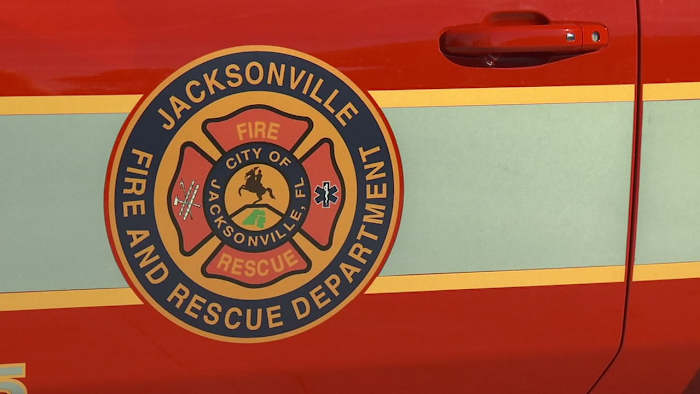JACKSONVILLE, Fla. – Jacksonville first responders are seeing fewer overdose 911 calls, but advocates advise that people should still remain cautious.
The Jacksonville Fire Rescue Department has been saving lives from deadly drug overdoses during the opioid epidemic.
Data from JFRD showed the “number of suspected opioid related overdose patients by year” is on track to be its lowest in at least the last seven years.
Mark Braddock, a business owner in Jacksonville who started his business after his brother died from an overdose.
“I lost my brother from an oxycotin overdose. Even though the numbers are trickling down, the dangers are still rising up,” Braddock said. “Fentanyl is way too easy and way to accessible to make.”
Braddock was going to fashion design school and found his brother after he overdosed. The name of the business, 8103, is the year his brother was born and died combined. 1981 and 2003.
According to JFRD data, the most suspected opioid related overdose patient incident calls by zip code health zones include:
-
32210
-
32244
-
32218
-
32209
-
32208
-
32216
-
32246
-
32254
-
32205
-
32207
-
32211
These are for the first two quarters of 2025. The numbers are still on trend for decreasing rates.
In 2014, men were 53% of the suspected opioid related overdose patients, and women were 47%.
So far, for 2025, men are 66%, while women are 34%.
In 2014, by race, suspected opioid related overdose patients included:
-
African American or Blacks – 8%
-
Hispanic or Latino – 2%
-
Other/unknown – 2%
-
White – 88%
So far, in 2025, the numbers were as follows:
-
African American or Blacks – 27%
-
Hispanic or Latino – 4%
-
Other/unknown – 3%
-
White – 66%
TJ Ward is the executive director of Project Opioid Jax, one of many groups working to educate, advocate and collaborate within the community for substance use disorders, specifically overdoses.
He’s met with families who have suffered from the opioid epidemic.
“Families who have lost loved ones from this epidemic are devastated, and it’s not a one-time event. It’s ongoing, and it’s a ripple effect. It not only affects the immediate family but also the extended family,” Ward said.
Braddock is one of those families. For 22 years, he had been keeping his brother’s memory alive through this business and though numbers are dropping, he hoped people would remain cautious.
“Unfortunately, I lost my brother to oxycotin, but we all still need to be ready, this crisis has not ended by any means,” Braddock said.
Copyright 2025 by WJXT News4JAX – All rights reserved.
